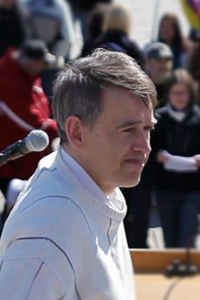Opinion: Suggestions for Fair Elections
Houston, we have a consensus. Well, almost.
All three parties in the B.C. legislature now support a ban on corporate and union donations, as well as setting a cap on personal contributions.
It’s that last one that gets tricky. What’s the right cap?
Perhaps B.C.’s new government should rip a page out of Alberta’s NDP playbook.
Legislate all points of agreement this fall and set a personal cap that’s painful for the parties, with an agreement that it will be revisited following a public consultation on a host of related electoral issues.
It would be a mistake to set a permanent cap right out of the gate, based solely on B.C.’s past fundraising results.
The province’s Wild West political culture has left a distorted reality of donations and party spending, especially when compared to rest of Canada.
A bit of context on party spending: in 2016, the B.C. Liberal party spent $12.2 million on such things as advertising ($1.18 million), research and polling ($956,803) and bank charges ($164,328).
Meanwhile the NDP scraped by with $5.2 million.
Back east, the Ontario Liberals spent $6.98 million in 2016 and the Progressive Conservatives ($7.6 million). Compared to B.C., Ontario has about three times the number of registered voters.
And this is where Alberta’s approach comes in handy.
The bill banning corporate and union donations – passed unanimously – took a two part approach to the issue.
The second part included public consultations on a revised personal limit. Unlike B.C., Alberta already had a cap in place before Notley. The consultation lowered it from $15,000 to $4,000.
Alberta also lowered spending limits for elections.
B.C. might want to do the same.
In the 2015 federal election, the overall limit in B.C. for a party running a full-slate of candidates was $5.73 million. For the 2017 B.C. election the limit was $11.63 million.
There’s no shortage of other issues for a consultation to consider.
For instance, most jurisdictions set candidate and party limits by taking into account the number of registered voters in a riding and any special circumstances that might exist.
Not so in B.C. The limit for all 87 ridings was the same, $77,674.
The party limit ($4.88 million) also didn’t vary, whether a party ran 10 candidates or 87.
It does vary federally.
Then there’s the tiny matter of the Election Act not adequately addressing the possibility of a minority government.
You may have missed it, but the loud sigh of relief heard across Victoria when Lt.-Gov. Judith Guichon didn’t dissolve the legislature and call an election, likely emanated from Elections B.C.
Imagine all the nuts and bolts that go into organizing an election: offices for the returning officers, polling stations, ramping up staff, telephones, ballots, mail-outs, printing, etc.
Now imagine doing it in 28 days – without a head start – and on the heels of just having done it.
The length of an election campaign in B.C. is 28 days, not a minimum of 28 days.
Organizing an election is far easier when you know the date four years in advance.
Minority governments don’t fall to suit anyone’s schedule, other than the party moving the motion of non-confidence or a government wanting to fall on one.
Simple solution? Provide some breathing room, by amending the legislation to allow for a campaign of 36 or 38-days outside of a fixed-date general election.
It wouldn’t be a bad idea to refer the province’s 87 riding boundaries to B.C.’s Court of Appeal for a constitutional reference either, just to ensure they’re constitutionally compliant.
When Ontario and Quebec have three times the land mass of B.C. and “protect” 18 ridings, compared to B.C.’s 17, something may be amiss.
One day it’s going to get to the courts anyway, so might as well take the lead.
The bar to register a new political party could also be reviewed.
In Ontario, it takes 1,000 signatures from electors, collected within a one-year period.
In B.C. it takes two and the party can then start issuing tax receipts for contributions.
Some issues may seem inconsequential when it comes to election legislation, but after the count, it’s important for the public to feel confident that whichever party won, did so fair and square.
Dermod Travis is the executive director of IntegrityBC. www.integritybc.ca


























